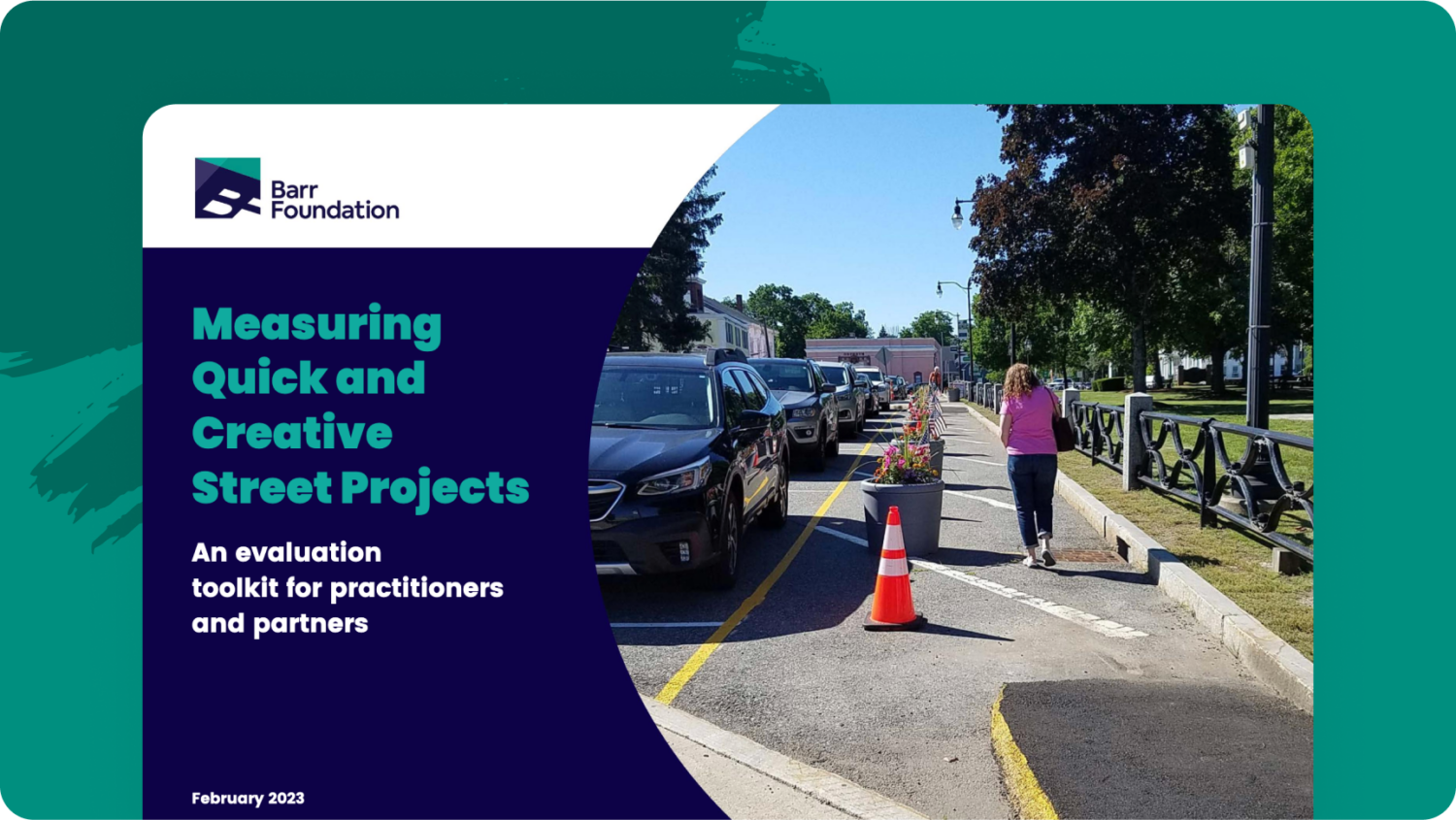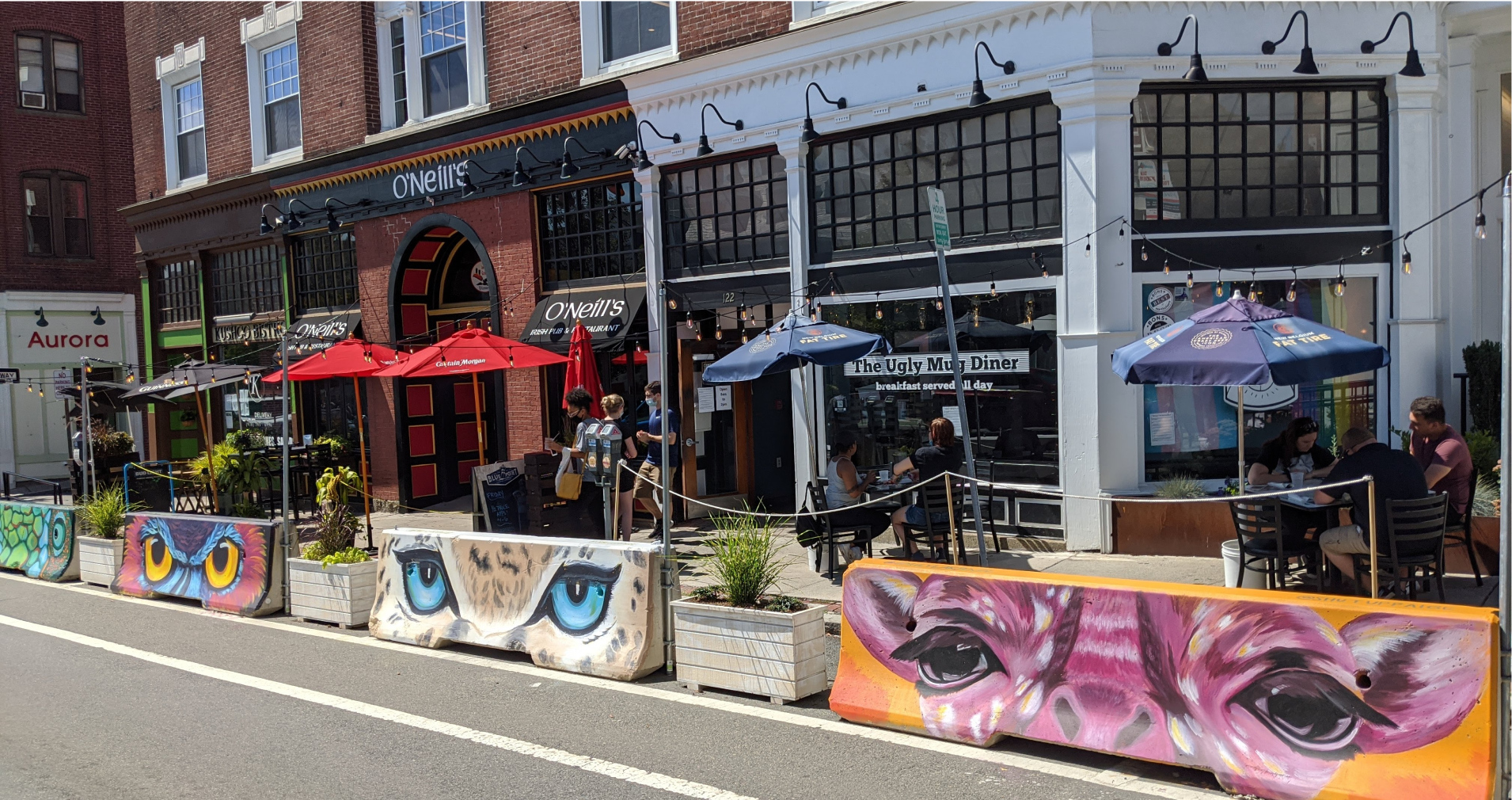
Quick and Creative Street Projects
Cities and towns across Massachusetts are implementing innovations on their streets.
Quick and creative projects that prioritize people are having big impacts. These changes are mostly simple: making space for chairs and tables for neighbors to sit and chat, slowing down traffic via cones so kids can play and bike to school, and painting bus lanes for people to travel faster.
A technical assistance team documented these efforts in two ways:
- An evaluation toolkit with guidance, examples, and templates for practitioners to measure projects using low-cost and repeatable evaluation methods.
- Examples and impact data from 23 municipalities over the course of 2020 and 2021, showing that simple changes have big impacts.
Safety for kids and families
Many of the projects focused on improving safety, particularly near schools and senior centers.
In Arlington, MA: a traffic circle made out of cones – no construction required – dropped the number of people speeding by 65 percent.
In Salem, MA: narrowing a road via new bike lanes encouraged safer driving behaviors (less than 40 mph) in a school zone by 61%.
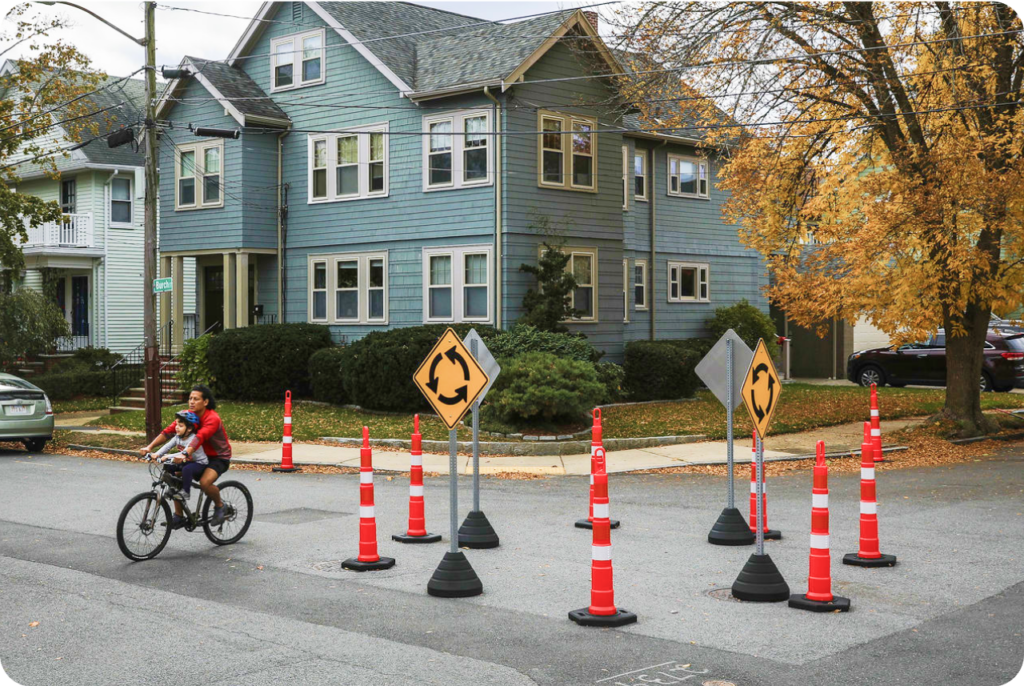
Traffic circle made out of cones in Arlington.
Supporting small business
Dedicating street space for outdoor seating strengthened the relationship between residents and their local downtowns and became a lifeline for businesses.
In a survey of residents who used outdoor seating in their communities, 75% said these areas made them more likely to walk, shop, and dine.
Another survey showed 57% of businesses reported increases in revenue.
In Amherst, MA: transforming 11 parking spots into outdoor dining created space for 80 people.
In Great Barrington, MA: closing one block to car traffic allowed for 125 people to eat and socialize safely.
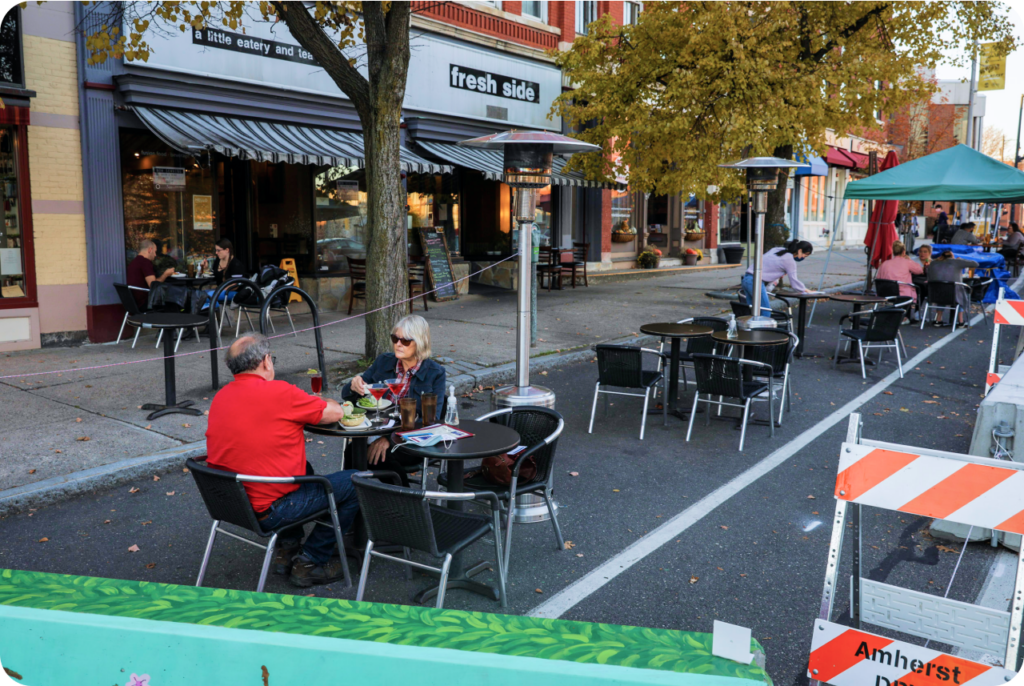
Reclaiming street space for dining in Amherst, MA.
Making it easier for people to travel without a car
In Everett, MA: New painted lanes made trips 35% faster for bus riders, many of whom are essential workers who rely on public transit.
In Pittsfield, MA: Through new dedicated bike lanes, 5,500 people can now bike comfortably to businesses within 15 minutes of where they live.
In Sterling, MA: 6.5x more residents and visitors can bike to Main Street businesses from the Mass Central Rail Trail on a more comfortable route.
Public opinion polling shows that street changes have broad support among Greater Boston residents, with 79% supporting more space for outdoor dining, 75% supporting new bike lanes, and 71% supporting wider sidewalks – even if those changes mean less space for parking and driving.
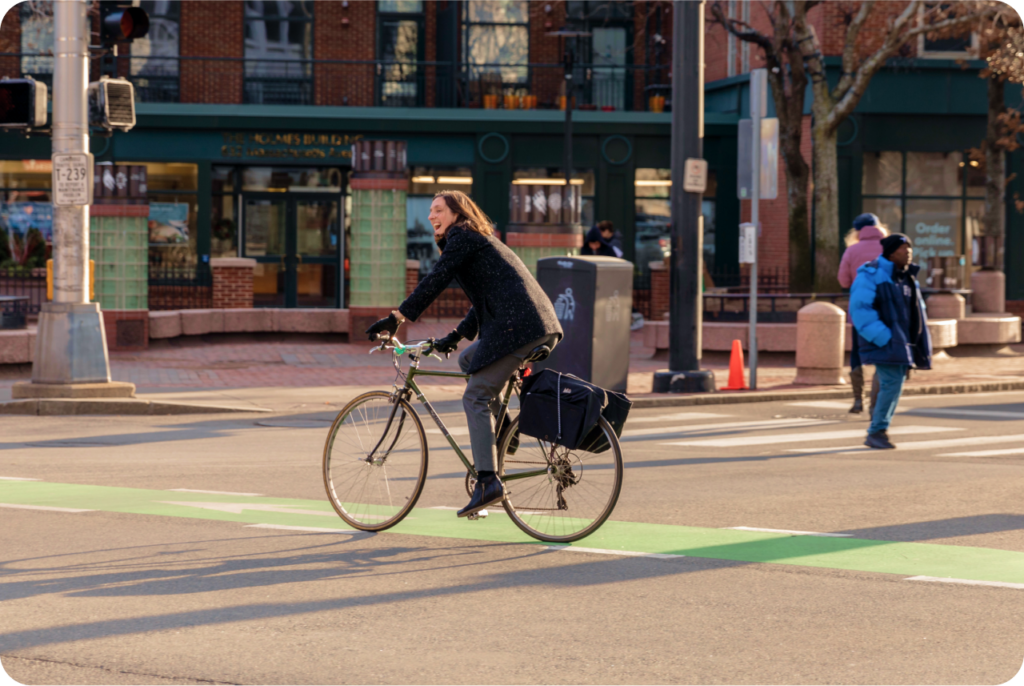
A cyclist enjoying the use of a dedicated bike lane.
Project Learnings
Examples and impact data
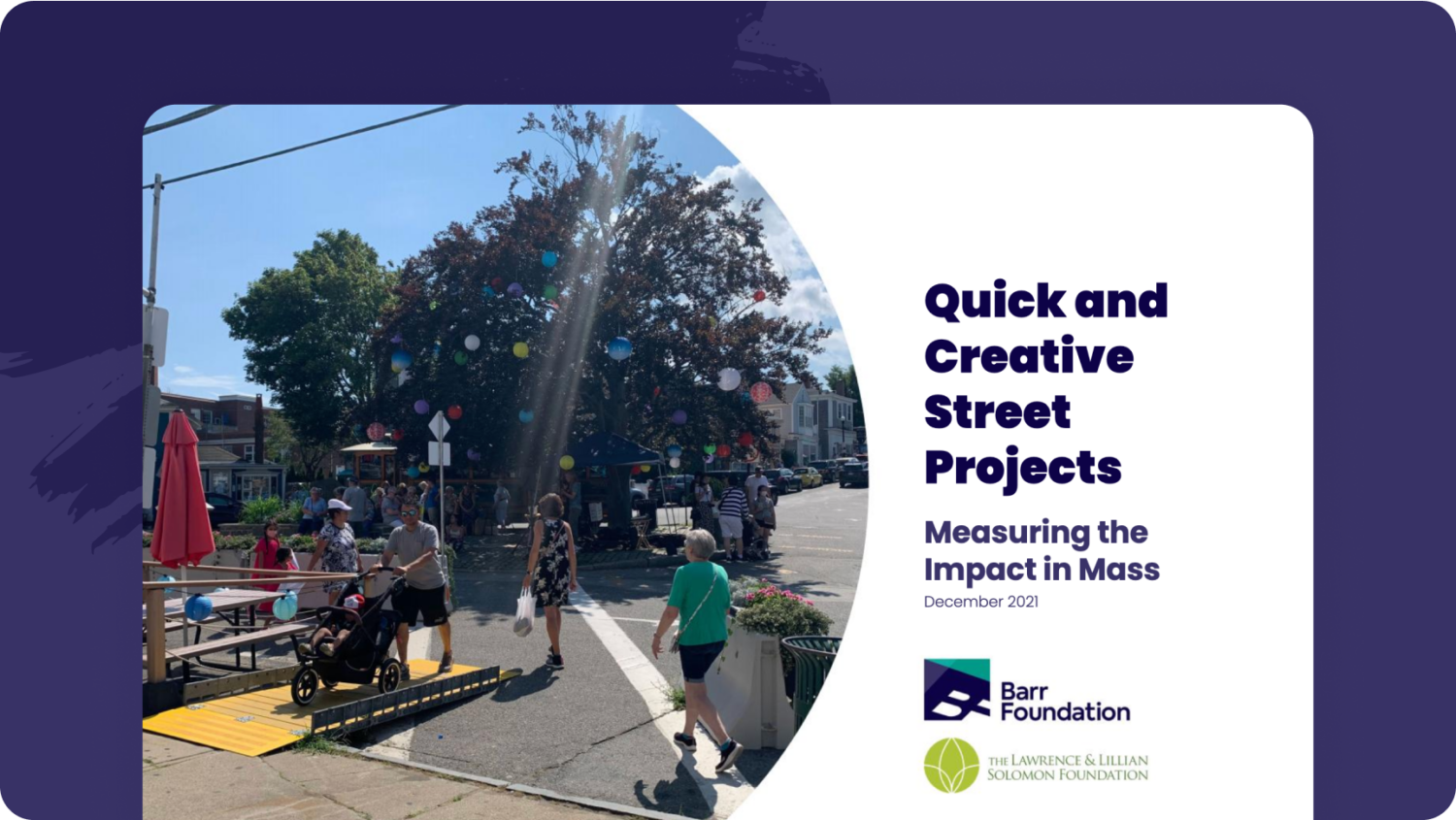
An evaluation toolkit for practitioners
